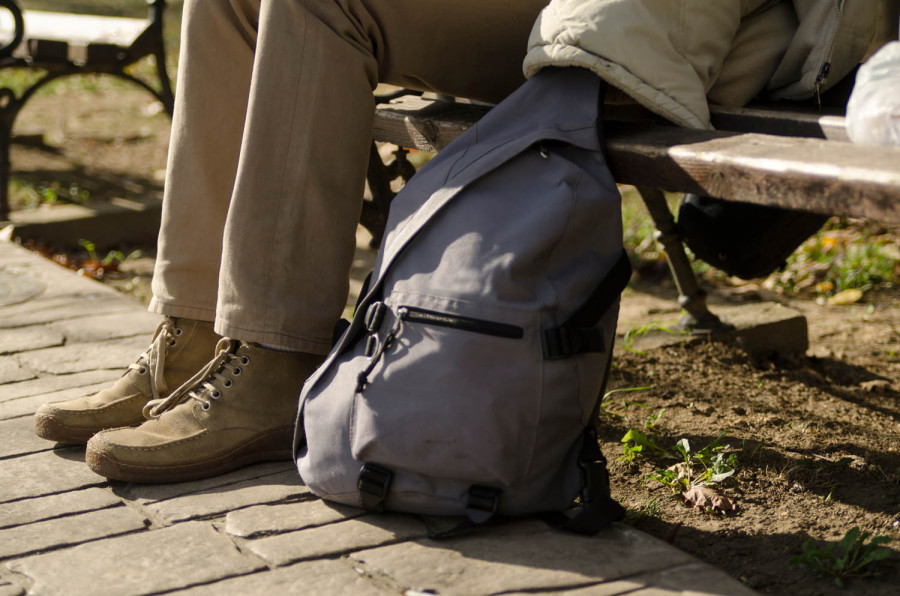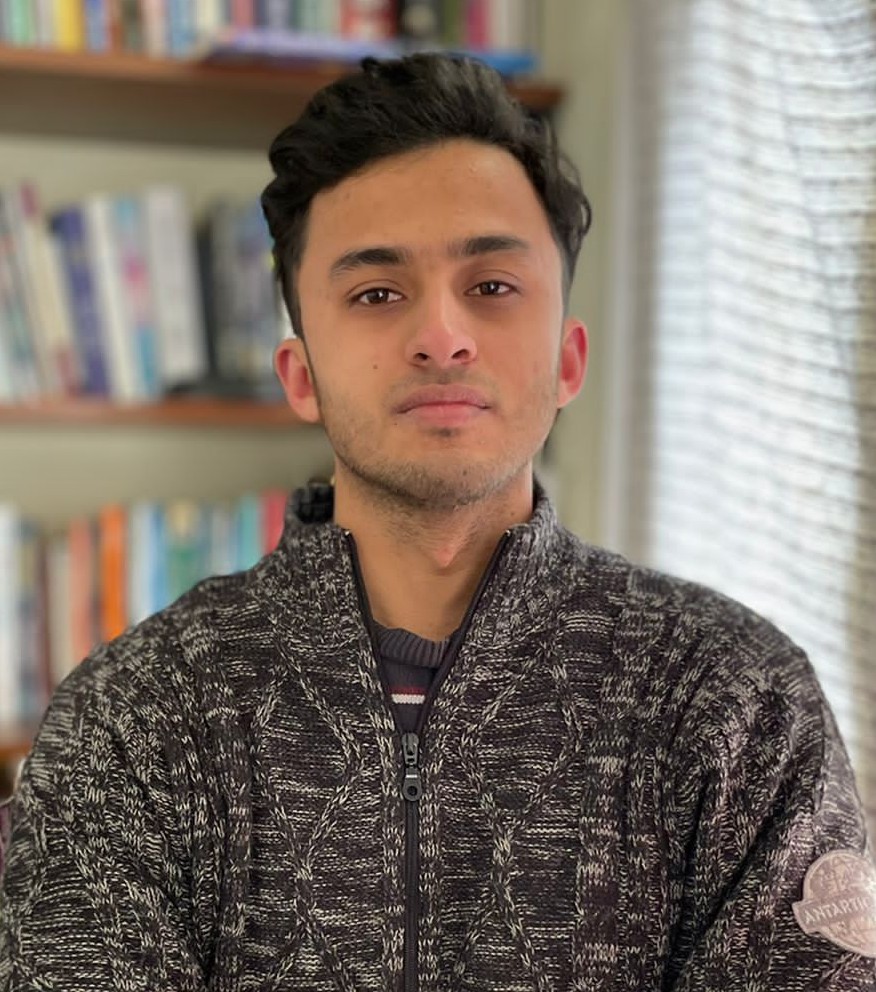Fiction Park
What was he going to have for breakfast?
It was my first time entering the bus park, although I had heard of it long enough to know that the new bus park was, in fact, quite old.
Sarans Pandey
I was told I’d find the bus from Naya bus park. What I wasn’t told, although I should have expected it, was that navigating the said bus park wouldn’t be as easy as my Pathao ride. I had taken a ten-minute ride with a young man who leaned more on the bubbly side of the personality chart. As such, I had to involuntarily participate in a conversation I knew was destined to fail.
Initially, I asked him to repeat his remarks multiple times, but when I sensed irritation on his part—mainly because of my inability to fully grasp his questions—I resorted to my go-to phrases that acknowledge but don’t aid participation.
“Right”, “That’s true” and my favorite “ehh.” His curiosity about me must have been fueled by the big green bag that I was carrying from which two trekking poles emerged. My curiosity about him had more to do with his expectation of me being able to understand what he said, through the helmet, when the vehicle was going forty-something an hour with all that wind harassing my ears.
Anyways, it was my first time entering the bus park although I had heard of it long enough to know that the new bus park was, in fact, quite old. I walked through the unmanned main entrance, into the dirty sidewalk littered with plastic tea cups and tobacco wrappers, which I’ve always assumed must come with the specific instructions to toss after consumption, and made my way towards where all the buses were lined up. A row of old and sturdy buses, all different in terms of their colour palette and yet somehow identical in terms of their rugged appearance, were parked beside one another. I started looking at the banners on the front windows of the buses and smiled as I saw one mentioning ‘Soti Khola’ in the Devanagari script.
The banners reminded me of a foreign friend who used to complain (understandably so) about being unable to take public transport because of the language barrier. I was glad I didn’t have that problem. Unfortunately, my smile quickly faded as the young bus conductor, who was still rocking his slippers in December, told me that the bus wasn’t, in fact, heading for ‘Soti Khola.’
“But it is written there,” I said to him, furiously pointing towards the banner. “Yes,” he replied casually and went back to rattling the names of districts that were vaguely familiar. Of the places he mentioned, one did sound to me like a place which would have been on the route to ‘Soti Khola,’ but ever since I found out that there is a Patan in Baitadi, I’ve decided not to rely on any linguistic deductions to make decisions.
I was disappointed but not surprised. The former because I’m human, and the latter because I am Nepali. After much back and forth, I finally found the right bus. The conductor took my backpack and shoved it into the rear end of the bus even before I told him I hadn’t booked a ticket. His response was, “No worries. Milera jaula.” The literal meaning of the expression is something along the lines of “we’ll go together,” but what he actually means is that there are not enough seats in the bus, but he will keep shoving as many people inside of it as permitted by the laws—not of the state—but of physics.
I hopped on, thinking I’d just occupy any seat available and vacate it later if someone came up with a ticket. The bus’s interior, much like its exterior, was painfully rigid and who better could attest to that than the old woman trying to place her backpack on the overhead compartment? The young man sitting behind her offered to help, perhaps thinking it was her age that somehow made her attempts unsuccessful, but when his youthful vigour also failed to solve the structural problem of the bus, the old woman just accepted defeat and sat down with the backpack on her lap. I spotted some empty seats up front and on the last row. I leapt for the latter as those tend to fall out of most people’s preferences.
It was one of those buses where a tall person has to crouch when standing and coil when sitting. Soon after I contorted into my seat, three people climbed up, led by a middle-aged man wearing a thick red tika and a khaada—a traditional shawl—around his neck. He looked at his ticket and then at my direction, which made me anxious. Thankfully, his gaze didn’t move beyond the seat before me. He told the woman already sitting there that it was his seat, to which the woman said, “No, it isn’t.” Then, not so politely (in fact, quite rudely), the man flashed his ticket and said, “Can’t you read this? Seat number 16.” The woman looked surprised but wasn’t fazed as she produced her own ticket, also for the same seat.
The man’s irritation then diverted to the bus conductor, who kept saying it wasn’t his fault, although he did upgrade the woman to one of the seats up front and accommodated the group behind.
It was only when the pop-folk music, a staple of every public bus, started playing that I felt I needn’t worry any longer about the ongoing chaos—the melody generally implies the start of a journey. The bus conductor found five or six more people after leaving the bus park, three ended up having to stand. Right before the check post at Thankot, a secret message from the conductor was passed to those standing up—they’d have to crouch along the walkway.
The intention of this Trojan horse-esque manoeuvre was to trick the police outside into thinking that the bus wasn’t carrying people beyond its capacity. The outcome, however, was a failure as one cop, perhaps through countless experiences like these, got into the bus to see people in their mid-forties squatting as if they were on nature’s call.
Later, when the bus was on the move again, and the bus conductor began collecting fares, the man beside him asked if the cop cut a slip, to which the conductor said, “No.” The person then asked how much he had given to the cop, and the answer was Rs200. “That’s a good fix,” the man replied, which made me smile. I thought about experts who go on TV proclaiming that corruption is the biggest problem in the country when in reality, it manifests as the most efficient solution.
I looked outside as we exited the valley, the mountain peaks visible in the distance. But all I could think of was the cop. What was he going to have for breakfast?




 17.8°C Kathmandu
17.8°C Kathmandu












